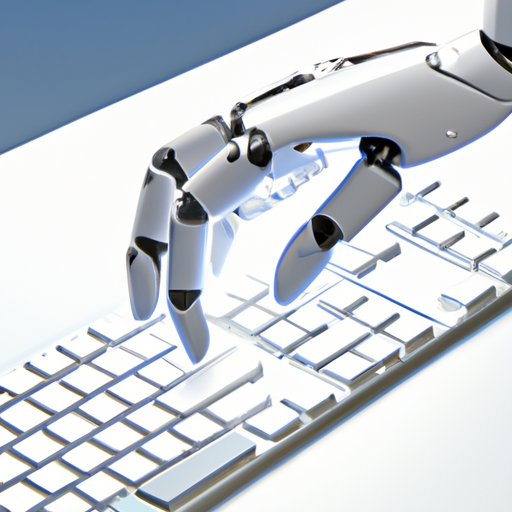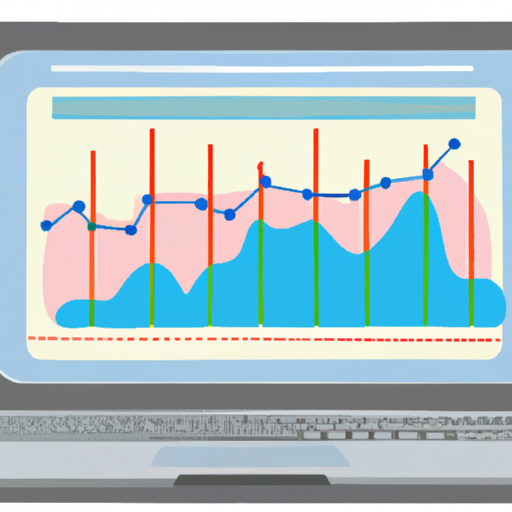The Rise of Automation and AI
The future of work is a hot topic of discussion in the business world, and as we move closer to 2024, the trends of automation and artificial intelligence (AI) are becoming increasingly important to consider. Automation and AI can help businesses become more efficient and productive, allowing them to increase their output without increasing their workforce. While there are concerns about automation and AI replacing jobs, these technologies have the potential to reshape the workplace in positive ways.
In 2024, automation and AI will be even more prevalent than they are today. Businesses will increasingly rely on automation and AI to automate mundane and repetitive tasks, freeing up their employees to focus on higher-level activities. Automation and AI will also enable businesses to collect data more quickly and accurately, allowing them to make better-informed decisions. By 2024, AI-powered tools will be commonplace in many businesses, and these tools will be able to handle more complex tasks than ever before.
The rise of automation and AI will also bring about changes to the way we work. In 2024, more and more businesses will be utilizing AI-powered tools to make decisions and automate processes. This will lead to an increase in remote working and virtual teams, as well as more flexible working hours. Automation and AI will also make it easier to access and analyze data, which will enable businesses to make better decisions and increase their efficiency.
By 2024, the workplace will be drastically different than it is today. Automation and AI will make it easier for businesses to increase their output without increasing their workforce, and virtual teams will become the norm. The rise of automation and AI can be a daunting prospect, but it also has the potential to positively reshape the workplace. Automation and AI can free up employees to focus on higher-level tasks, and businesses can use AI-powered tools to make better-informed decisions. The future of work is an exciting one, and automation and AI will be an integral part of it.

The Impact of Technology on Job Security
As we look forward to the future of work, one of the major trends to watch in 2024 is the impact of technology on job security. Technology has been drastically transforming the global workforce over the last decade, with automation and artificial intelligence quickly becoming the norm. In the next four years, the trend towards automation will continue to accelerate, with many manual labor jobs being replaced by technology-driven ones.
This shift in the workforce brings forth a unique set of challenges and opportunities. On the one hand, technology is taking away jobs that used to be done by humans, leading to job insecurity. At the same time, new technologies are creating jobs and industries that didn’t exist before, offering opportunities for individuals to pursue new career paths. For example, blockchain technology is already starting to revolutionize the way we store and manage data, and this could lead to a variety of new jobs and roles in the near future.
In addition to creating new jobs, technological advancements can also help to enhance existing ones. With the rise of artificial intelligence and machine learning, many processes and tasks that used to be done manually can now be automated. This has the potential to increase productivity and efficiency in the workplace, allowing employees to focus their efforts on more creative and innovative tasks.
The impact of technology on job security is also a key factor to consider in the future of work. As technology continues to become more advanced, some jobs that used to be secure may no longer be viable. At the same time, new technologies are also creating new jobs and industries that didn’t exist before. As such, it’s important for individuals to stay up-to-date on the latest technological trends and to be prepared to acquire new skills.
In the future of work, companies should also prioritize job security for their employees. Companies should strive to provide employees with the resources, support, and training they need to stay competitive in the job market. This could include offering training in new technologies and providing financial support for employees who need to upskill.
Finally, the need for job security also calls for a more proactive approach to career planning. Individuals should take the time to assess their skills and consider how they can best prepare themselves for the future of work. This could involve taking courses in new technologies, such as data science or machine learning, or gaining experience in different roles.
In the next four years, technology will continue to shape the future of work. However, it’s important to remember that technology brings both challenges and opportunities. With the right attitude and the right resources, individuals can use the power of technology to their advantage, creating more secure and meaningful jobs in the process.

The Gig Economy
The gig economy is a rapidly growing trend in the world of work and shows no signs of slowing down anytime soon. By 2024, the gig economy is expected to be even bigger and more commonplace than it is today.
There are a number of reasons why the gig economy is becoming increasingly popular. Primarily, it offers people the ability to work on their own terms and flexibly around commitments such as family life or other responsibilities. This is attractive to many people who are trying to balance different aspects of their lives and make a living.
In addition, the gig economy allows people to take advantage of the digital world and use technology to find work that is well-suited to their skills and interests. Instead of being limited to a single job, they can pick and choose jobs that are interesting and challenging, and that meet their individual needs in terms of income and hours.
The gig economy also provides an opportunity for people to use their skills in an innovative and creative way. People can now use their skills to develop new products and services, design websites and apps, or create content for blogs and websites. This type of work is both fulfilling and lucrative, and gives people the chance to make a living doing something that they actually enjoy.
For businesses, the gig economy offers a way to get access to high-quality, specialized talent without having to commit to a long-term employment contract. Companies can also benefit from the flexibility of the gig economy, as they can adjust and adapt their workforce to fit their current needs.
Overall, the gig economy is revolutionizing the way that work is done and providing new opportunities for people to make a living. It is a trend that is here to stay and will continue to grow and expand in the future. By 2024, the gig economy is predicted to be even bigger and more popular than it is today. With the right attitude and approach, people and businesses can make the most out of the gig economy and take advantage of the unique opportunities it offers.

The Growing Importance of Soft Skills
The future of work is changing rapidly. In 2024, it will be even more different than it is today. One of the most significant trends that will be emerging is the growing importance of soft skills. Soft skills, such as emotional intelligence, communication, creativity, and collaboration, are becoming increasingly important for success in the workplace.
In the future, having strong soft skills will be even more essential than it is now. Employers will be looking for candidates with strong communication skills, the ability to think critically and creatively, and an understanding of how to work with others in a productive way. Soft skills are also becoming more important in other areas, such as customer service, project management, and leadership.
The reason why soft skills are becoming so important is because they are essential for success in the digital age. With more businesses moving to digital platforms, it is essential to have the skills to work in this new environment. Soft skills can help professionals manage their time better, collaborate more effectively, and create innovative solutions.
The ability to use soft skills is also important for developing relationships with customers, clients, and colleagues. In the future, people will need to be able to communicate effectively and build relationships online. People will also need to be able to think quickly and adapt to new environments.
Soft skills can also be beneficial for personal development. Soft skills can help people understand themselves, learn how to manage their emotions, and build relationships. They can also help people develop their career goals, improve their confidence, and work more effectively.
In the future, having strong soft skills will be essential for success. Employers will be looking for candidates who have strong communication skills and the ability to work in a collaborative environment. Soft skills can also help people develop their career and personal growth. As the future of work continues to evolve, it is essential to have the right soft skills to succeed.

The Role of Remote Work
The role of remote work has been thrust into the spotlight in recent years, and its future looks even brighter. In 2024, the world of work is likely to be fundamentally changed by the remote revolution. Companies will continue to embrace the flexibility and cost savings of remote work and remote teams, and the trend is only likely to accelerate.
The flexibility of working from anywhere has been a major draw for many professionals and is likely to remain so in the future. Remote work allows for a greater level of autonomy and creativity, as well as the potential for more efficient workflows and better work-life balance. Plus, with the increased availability of technological resources, remote teams will be able to collaborate more effectively than ever before.
One of the major trends in remote work in 2024 is likely to be the rise of the virtual office. Remote teams will be able to use virtual office technology to replicate many of the features of an office environment, including shared desktops, video conferencing, and even virtual whiteboards. Employees will be able to work together in a virtual office space, with all of the collaboration, communication, and productivity benefits of a physical office.
The development of artificial intelligence (AI) is another trend that is likely to shape the future of remote work in 2024. AI will enable remote teams to automate mundane tasks and enable more efficient project management, while also providing a more secure way to store sensitive data. AI can also be used to track project progress and productivity in real time, providing teams with an unprecedented level of visibility into their workflows.
The rise of the gig economy is also likely to be a major factor in the future of remote work. Companies will be able to utilize the services of freelancers and contractors on an as-needed basis, allowing them to access the skills and expertise they need without having to hire a full-time employee. This will enable businesses to take advantage of the cost savings associated with remote work, while still being able to access the talent they need when they need it.
Finally, the future of remote work will be shaped by the development of 5G networks. With 5G, remote teams will be able to access faster speeds, lower latency, and improved connectivity, allowing them to collaborate more effectively and securely. This will further enable the global sharing of information and knowledge, while also providing a more reliable connection for remote teams.
The future of remote work looks bright, with major advances in technology likely to make it even more accessible and efficient. Remote teams will be able to take advantage of a range of tech tools, including virtual offices, AI, the gig economy, and 5G networks, to work more effectively and securely. Remote work is here to stay, and its potential looks even greater in 2024.

The Changing Nature of Professional Development
The future of work is changing rapidly and the trends we see today will certainly look different in 2024. Professional development is no exception to this change, as organizations and individuals alike recognize the importance of staying ahead of the curve. In 2024, we can expect to see some major shifts in the way we think about professional development.
The traditional approach of attending seminars and workshops, while still valuable, will be supplemented by much more creative and interactive methods. Innovative companies will be looking for ways to engage and motivate their employees, and professional development will be no exception.
Organizations of all sizes will be leveraging online learning and virtual reality to help their employees stay ahead of the competition. They’ll be using gamification techniques, interactive activities, and other creative methods to make learning more engaging and effective. Employers will be able to customize training to the individual’s needs, allowing them to achieve the maximum benefit from their development experiences.
At the same time, employees will have much more control over their own professional development. They’ll be able to access online resources and courses to gain knowledge and skills in areas they’re interested in. They’ll be able to tailor their development experiences to their own personal needs and preferences.
In 2024, we’ll also be seeing an increase in the use of artificial intelligence and machine learning in professional development. This technology will be used to create personalized learning experiences and to provide employees with tailored feedback. It will be used to track progress and provide personalized recommendations for further development.
Finally, professional development in 2024 will be based on a much more holistic approach. Companies will be focusing on developing both the professional and personal sides of their employees. They’ll be encouraging employees to take advantage of the many opportunities available to them, such as mindfulness and meditation, to achieve a more balanced and productive life.
The future of professional development is certainly an exciting one. With the use of innovative technologies and creative methods, organizations and individuals alike will have the opportunity to access new and exciting forms of learning and development. In 2024, professional development will no longer be a one-size-fits-all proposition, but instead will be tailored to the individual’s needs and preferences. With the right tools, techniques, and resources, everyone will have the opportunity to develop themselves to their fullest potential.

The Impact of Inclusion and Diversity Initiatives
In 2024, the workplace is shifting to become a more inclusive and diverse environment. Companies are recognizing the importance of having a diverse workforce and are actively investing in both inclusion and diversity initiatives. As a result, the workplace is becoming a more inclusive and creative space for employees.
Inclusion and diversity initiatives are having a major impact on the future of work. By allowing a greater range of voices to be heard and appreciated, companies are creating a more collaborative and innovative atmosphere. Employees feel more valued and empowered, leading to more engagement, creativity, and productivity. In addition, inclusion and diversity initiatives are creating a more positive work culture, where all employees feel respected and safe. This, in turn, leads to higher job satisfaction, which is beneficial for both employees and employers.
As more and more companies invest in inclusion and diversity initiatives, the workplace is becoming increasingly aware of the importance of these initiatives. Companies are implementing processes that focus on inclusivity, such as unconscious bias training, diversity and inclusion task forces, mentorship programs, and more. These processes are beneficial for both current and potential employees, as they help foster an environment of respect and understanding.
Inclusion and diversity initiatives are also helping to reduce workplace inequality. By ensuring that all employees have access to the same opportunities, regardless of race, gender, or other identity factors, companies are helping to create a more equitable and fair workplace. This helps to ensure that all employees have a chance to contribute to their company’s success.
The impact of inclusion and diversity initiatives is far-reaching. Not only do these initiatives help cultivate a more supportive and innovative work environment, but they also work to reduce workplace inequality and create more equitable opportunities for all employees. As more companies continue to invest in inclusion and diversity initiatives, the workplace is becoming an increasingly positive and equitable space for employees.
In 2024, the workplace is continuing to evolve, thanks to the impact of inclusion and diversity initiatives. Companies are recognizing the importance of these initiatives and are actively investing in them in order to create a more equitable and productive environment for their employees. With more and more companies committing to inclusion and diversity initiatives, the workplace is becoming a more positive and collaborative space for employees, leading to greater engagement, creativity, and productivity.

The Rise of New Fields and Roles
We are on the cusp of a new era in the world of work. By 2024, the labor landscape will be vastly different from what it was just a few years prior. The future of work is rapidly changing and with it comes new fields and roles that will shape the way we work and live.
As technology advances, so too does the need for a variety of new roles. Artificial Intelligence (AI) will become increasingly important and so too will the need for people to understand and manage it. AI will also create opportunities for new roles such as data scientists, machine learning engineers, and natural language processing experts. As AI becomes more commonplace, we will also need people to think creatively and come up with new ways to use this technology in our everyday lives.
In addition to AI, the demand for digital marketing professionals is expected to grow significantly in the coming years. We are currently in the midst of a digital revolution, and it is no surprise that digital marketing will become an integral part of any successful business. As businesses continue to invest in digital marketing, new roles such as content strategists, SEO experts, and social media managers will become increasingly important.
The emergence of the gig economy will also create new roles and opportunities. The gig economy is characterized by short-term, flexible jobs that are often completed remotely. This will mean an increase in demand for freelancers, remote workers, and those who are able to fill the niche roles created by the gig economy.
The future of work is an exciting one, with the potential for a wide variety of new fields and roles. We can expect to see more opportunities for people with specialized skills and a greater demand for creative thinking. As technology continues to advance, we are sure to see an influx of new roles and opportunities that will shape the future of work. We can look forward to a future in which our work is more rewarding and more meaningful than ever before.

The Role of Government Regulation
As we move into the future of work, government regulation plays a key role in ensuring that workers are safe and treated fairly. In 2024, the role of government regulation will be more important than ever in protecting the rights of workers and ensuring a level playing field between employers and employees.
Government regulation will be necessary to protect workers from exploitation and ensure that wages remain fair. In addition, regulation will be critical for encouraging employers to provide adequate benefits for their employees such as health insurance, retirement plans, and paid leave. Government regulation will also be important for protecting workers from discrimination and harassment in the workplace.
In 2024, government regulation will also be important for protecting workers from the impacts of automation. Automation is transforming the way we work, and government regulation can help to ensure that automation is used responsibly and does not lead to job losses or a widening of the income gap. Government regulation can also be used to ensure that workers who are displaced by automation are provided with adequate retraining and job opportunities.
Government regulation will also be critical for ensuring that the gig economy remains fair and equitable. In recent years, the gig economy has grown rapidly and become an increasingly important source of income for many workers. Government regulation will be necessary to ensure that gig workers receive fair pay and access to benefits such as health insurance and retirement plans.
Government regulation will also be important for protecting workers from the risks of technology. Technology has revolutionized the way we work, but it has also created new sources of risk. Government regulation will be needed to ensure that technology is used responsibly and does not lead to data breaches, identity theft, or other forms of cybercrime.
Finally, government regulation will be important for protecting workers from the impacts of climate change. In 2024, the effects of climate change will be more severe than ever before, and government regulation will be needed to ensure that workers are safe and protected from the impacts of climate change. Government regulation can also be used to ensure that businesses are doing their part to reduce their carbon footprint and mitigate the effects of climate change.
Overall, government regulation will be essential for ensuring that the future of work is fair, equitable, and safe for all workers. In 2024, government regulation will be more important than ever for protecting workers from exploitation, discrimination, automation, and the risks of technology and climate change.





